As Important As It Is Irrelevant | |
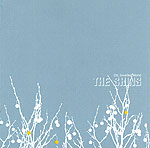
| I first heard of The Shins at the tail of 2001 when I read in an end-of-year chart that their Sub Pop released Oh, Inverted World album was a great artefact that bristled with the feelings of the Kinks' classic Village Green Preservation Society. Suitably intrigued I ordered up the album only to be seriously under-whelmed. It sounded nothing like the Kinks' album. Not even remotely. Which only goes to prove you should never believe anything a music journalist tells you. Now that the album is set for a domestic UK release, however, I decided I'd give it another spin, and I must admit that now, without those enormous expectations hanging over it, it does sound rather fine. Which actually is an enormous understatement, because in the past few weeks of somewhat unseasonable sunlight, The Shins have been just about the only band given precious time on my stereo. I don't know why I didn't spot it the first time I listened, but Oh, Inverted World is just about as jam-packed full of great infectious Pop as it's possible for an album to be. It positively bulges with hooks and wildly addictive melodies, all rushing headlong up into the outer reaches of the stratosphere and into those hardest to reach crevasses of your heart. You could stick this album on your snazzy CD player, stick it on random play and never fail to hit the bull's-eye of fantastic summer-soaked Pop (assuming you edited out the just too-Elliot Smith sounding 'New Slang', that is). Oh, Inverted World is one wondrous wander through the fields of Spring dew, gazing up in skies of cornflower blue, spiralling around and around, running down hills in slow motion; is simply a glorious collection of some of the finest, most infectious and addictive pure-Pop sensation you'll hear. Ever. And, having listened to it all non-stop for weeks on end, I'd even possibly (but only possibly, and you'd have to catch me on the heartbeat of a moment like when the sun catches the chrome on the parping horn of the kid next door's bicycle, leaned as it is against a rusting blue swing set) admit that on occasion it does in fact scent slightly of the kind of Kink that emanates from the Village Green. It's mainly in the closing two tracks, 'Pressed In A Book' and 'The Past and Pending' (at over five minutes, easily the longest track on the album). But only slightly - and mainly for the somewhat mournful, genuflecting feel of 'The Past and Pending', and even then mainly in the gorgeous solo horn that peers through the clouds. Oh, Inverted World is the kind of album that will seep into your psyche through time, the kind of record that will, if you're anything like me, take root in your heart and blossom in the Spring and Summer sunlight, casting wonderful shadows and throwing diaphanous patterns on the roof of your mind (or your attic, whichever seems most appropriate). It deserves to be THE album that every hipster plays to death in summer 2002, deserves to be the sound cascading from stereos the land over. The Shins ought to be everyone's new favourite band. At least until the Autumn sets in again, and that's way too far in the future to even waste time thinking about. |
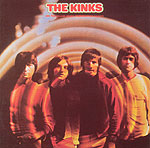
| Mention of the Kinks of course brings me to the welcome rash of Kinks reissues. Remastered and with a clutch of bonus tracks from assorted singles, EPs and such like, these releases are some of the most essential purchases anyone will make in 2002, whether it's as a replacement for worn out vinyl or as a delicious first foray into the Kinkdom of Ray and Dave Davies. I envy anyone coming to these albums afresh. Discovering the genius of The Kinks was one of the great enlightening moments of my life. Particularly hearing the unsurpassable triumvirate of Face To Face, Something Else and The Village Green Preservation Society, which blew me away when I first heard them and continue to do so today. There are so many reasons to love The Kinks of '66-'69, not least of which would be the quality of song writing from the Davies' brothers; the genuinely groundbreaking way in which The Kinks were translating traditional folk approaches to song writing into marvellous new Pop/Rock structures. The Kinks told tales of real and mythic people and realms, made vignettes that crinkled and sparkled with wit, warmth, love and vitriol. Start with the three albums already mentioned, and work your way backwards through the delights of the likes of The Kink Kontroversy and Kinda Kinks (more rough and ready '60s r'n'b) or forwards to Arthur and Part One Lola vs Powerman (a bit too Rock and the start of the Kinks' long decline). And if you haven't already picked it up, catch that double CD set of BBC recordings, even if only for the wildly cutting, dynamic attack of Dave Davies' 'Love Me 'Til The Sun Shines' which is one of the most awesome slabs of Popnoise you'll ever hear. It's got a hammering heart that reverberates with electric passion and sounds for all the world like a blueprint that the Wolfhounds would later follow, which maybe explains why they did such a great version of 'I'm Not Like Everybody Else'. |
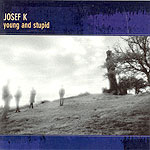
| Equally, I truly envy anyone coming to Josef K for the first time courtesy of the two collections recently issued by LTM. There's a reissue of the Sorry For Laughing / The Only Fun In Town album(s) that Rev-Ola rescued a few years ago, and which originally of course appeared (or didn't appear, depending on which title you're talking about) on the peerless Postcard label back at the birth of the 1980s. It's thankfully now fairly common knowledge that the Sorry For Laughing record was the aborted first Josef K album. Recorded in 1980, with the band cresting a wave of critical and popular acclaim (well, that's popular in the realms of the unpopular) the album was rejected by the band for sounding too polished. It was a typically perverse action for the times from people still fired more by the spirit of Punk than by any need to be 'successful' on the traditional music industry's terms. Josef K instead recorded a new, darker, sharper version of the album. Originally released in the summer of 1981, The Only Fun In Town was naturally a marvel of eerie, abrasive PunkPOp and remains unsurpassed to this day, equalled only by perhaps Joy Division's Unknown Pleasures and maybe Orange Juice's rescued Ostrich Churchyard. The second recent LTM Josef K release is a collection of singles tracks and radio sessions. Taking its title from a vinyl compilation that originally appeared back in the late '80s, Young and Stupid adds to that particular collections' tracks with some essential cuts. There's 'Chance Meeting' in its slower, echoing incarnation from the b-side of their debut single 'Romance'. There's more cuts from the BBC radio session of 1981, notably the ace cover of Alice Cooper's 'Applebush' and of course the tracks that became Josef K's farewell single. 'The Missionary', with it's two variations on 'The Angle' was one of the great singles of the post-punk era and a great gesture from a band in complete control. There's a great story that might be myth that says that Josef K promised to make one classic album and then split up. They may have taken two stabs at it, but they essentially delivered on that promise. For that attitude and approach to the process of Pop alone they should be treasured. That the records they left behind continue to glow with the strangest colours of odd psych-punk soul is almost an added bonus. Now all we need is for someone to reissue those Paul Haig and the Rhythm of Life records. Of course that's a lie. That's not all we need at all. For whilst it's great that the Josef K records have been regularly kept in print by a variety of sources these past fifteen years or so, it seems a tragedy that it's so much harder, if not impossible, to find releases by some of their contemporaries like Fire Engines (the first Rev-Ola release notwithstanding) or Scars. Someone should do something about it... |
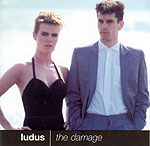
| The LTM label meanwhile continues its one-man crusade to rescue other seldom heard gems from the depths of time that were the 1980s with a collection by Ludus. Being a Smiths fan in the 1980s I knew about Ludus because Morrissey was a huge supporter but I don't recall ever hearing any of their records. I also knew about Linder's collage work through stuff like the Buzzcocks' singles sleeves and of course the cover of Magazine's Real Life, and I knew that she had also been involved with Jon Savage in producing the great Secret Public fanzine. But I never heard any of Ludus' records. So whilst I can listen to The Damage now with that context in mind, I still find it hard to pin down what's actually going on, except to say that most of it sounds terrifically deranged and yet completely controlled and carefully positioned. It really does sound like the theories of collage applied to sound, where the collage is that of making juxtapositions of style and content rather that simply piecing together samples of found noise and sound. The '80s gets a lot of bad press from a lot of people, for a lot of good reason, but I maintain that the '80s there was more genuine experimentation and cross-fertilisation happening that at just about any other time in Pop history. You just had to know where to look. So what do Ludus finally now sound like? Well, it's sometimes a bit like Siouxsie and the Banshees going mad at Butlins with Pigbag doing something weird in the background, augmenting their horns with synths and drum machines. At other times it's more like Girls At Our Best playing beach vollyball against the Slits or the Raincoats in Jamaica whilst a steel band plays down a phone line on the sidelines. Or not. Just go dive in and figure it all out for yourself. |
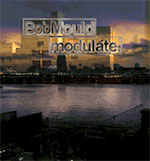
| Back in the '80s I knew a lot of people who loved the likes of Josef K and Ludus. I knew a lot of other people who loved Husker Du. Seldom would the two groups of people overlap. I really loved Husker Du for a variety of reasons; they were loud, they often played ludicrously short songs fast (and when they didn't they still sounded awesome) and they often buried the most glorious of melodies inside walls of oddly glamorous noise. Their story is one for another time and another place, but suffice it to say that I thought the Husker Du core of Grant Hart and Bob Mould was up there with the likes of Forster and McLennan in the stakes of classic songwriting partnerships. With the demise of Husker Du it was Mould who emerged more successful in sales terms as a solo artist (Hart's solo material was just as good - it just sadly never seemed to catch the public attention to the same extent), and the first Mould solo album Workbook remains one of the most personally evocative albums I own. It's the soundtrack to a few strange months in the USA, trailing down through the Florida Keys, up through the Smokey Mountains and down again through Tennessee and Mississippi. Which is as important as it is irrelevant, of course. I didn't much like Mould's stuff as Sugar though. Whilst everyone else in 1992 was singing their praises, I thought Copper Blue was really pretty dull, although I did like 'Hoover Dam' and still do. But that might be just be because I like dams. I lost track of Mould after Sugar, and haven't heard any of the records released since Copper Blue. I dare say I'd have been untroubled by his new album Modulate if a review copy hadn't arrived a few months ago. Indeed, on first listens I didn't really think much of this new Mould offering at all, aside from being equally confused and intrigued by his dabbling with electronica on the opening tracks. And then something happened: I just kept playing it. Well, you know how it is; you're up for work, preparing your lunch for the day ahead, slipping the bread into the toaster, getting the raspberry and Echinacea teabags out of the cupboard, and you hit the 'play' button on the crumby old kitchen stereo. And whatever is in the machine will suffice. So it was with Modulate. It just kept playing for a week or so, every morning, and it started to sound terrific. The odd electronic treatment of Mould's great voice on '180 Rain' and 'Sunset Safety Glass' that at first had seemed so odd and wrong, started to sound equally odd but just as plainly right. The clashing soundscape of 'Homecoming Parade' that had sounded all clumsy and crass sounded now monstrously, strangely plaintive; a desperate wish to disengage from the routine of the days ahead. The electronic washes and clattering drum machines of 'Lost Zoloft' sounded like the ghostly voices of pasts and futures merged into a magnificent Now. The fluid movement of the album between electronics and the more 'traditional' guitar noises of the likes of 'Slay/Sway' or 'Comeonstrong' showed that at the core of Modulate was still great songs: showed that Bob Mould still has the gift of melody, is still more than able to mix up a marvellous creation that can leap with the deftness of a gazelle and crash with the head-on ferocity of a stampeding rhinoceros. Modulate might take some getting used to, but it's worth your perseverance. I'm once again looking forward to what Bob Mould is going to do next. © Alistair Fitchett 2002 |